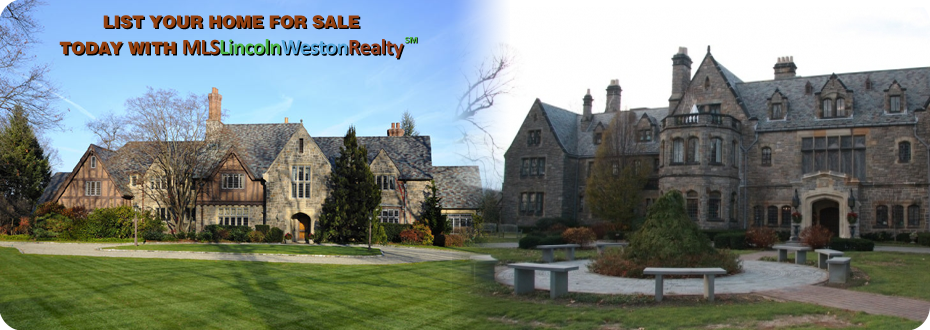December 2011 Blogs
5 Overpricing Cures That Can Get Your Home Sold
Today’s home sellers have a hard row to hoe, as my Mom would say. Home values have dropped, the market is flooded with competition
and even if a buyer does come along, a record high number of deals fall through. On top of that, they face the age-old conundrum of
having two seemingly conflicting aims: they want to get their homes sold, fast, but also want - and need - to squeeze every single
possible dollar out of it.
While it’s tempting to price your place on the high side and ‘test the market’ or ‘negotiate down,’ overpricing your home
can actually deter buyers, cause your home to lag on the market and eventually even expose you to the risk of being perceived as
desperate and receiving lowball offers.
Here are 5 ‘cures’ to the temptation to overprice your home, all of which can help you max out the chance that your home will sell.
1. Check the Comps! “Comps” is real estate lingo for comparable sales
- the nearby, similar homes that have recently sold. You might think that your taste level, aesthetic style and home maintenance
practices are vastly superior to those of your neighbors - and you might be right. But this will be the single largest purchase
your home’s eventual buyer will ever make, and trust me - they will be doing the research. The small contingent of urgent and
qualified buyers who are active on today’s market do not want to overpay for a home, and most will view your home as overpriced
and not worth the hassle (or the haggle) if it is out of whack with the recent sales prices of similar homes.
Similarly, appraisers will use these numbers when figuring out your home’s value. Even if you do get an offer at a
higher-than-justified price, if the buyer’s appraiser finds that your home is overvalued compared to other nearby recent sales,
it can cause major delays in your buyer’s mortgage process - or derail it altogether.
Work with your agent to find and evaluate the recent sales in the area, and to ensure that your home’s list price
makes sense vis-a-vis the comps.
2. Get inside the minds of the local home buyers. The vast majority
of buyers - over 90 percent - start their house huntinhg online. And what most of them do is type in a price range, a range
of bedrooms and bathrooms and a geographic area, then spend dozens of obsessive hours perusing hundreds of listings.
Given the flooded market and buyers’ busy lives, many will screen your home off their interest list in a New York
minute if it seems overpriced from its online listing. If that one-inch picture and the number of beds, baths and square
feet either (a) doesn’t make it into their search results because the price is so much higher than what most local buyers
want to spend on a home with those criteria, or (b) seems underwhelming, for the price, compared to the other online listings
of similar homes, prospective buyers will never even make it into your home, and all your stunning staging and crave-able
curb appeal will never have the opportunity to work their magic.
Local agents have an inside track on what local buyers care about and what they will and will not spend. Talk to
your agent about it, but don’t forget to actually listen to and consider what your agent has to say! If you don’t trust
what an agent is telling you about where you should list your home, talk to several agents - if the consensus is a
recommended list price range lower than what you had in mind, that’s a sign you should reconsider.
Also, search for similar homes to yours on Trulia, to see how it would stack up against similar listings online
at the price range you have in mind. That’s where local prospective buyers will see it (and screen it in or out) first.
3. Visit competing Open Houses. Buyers do not shop for homes in a vacuum. They’re out there
looking at dozens of homes - or more - to make sure they’re (a) getting the best deal possible, and (b) not missing ‘the one.’ So, while viewing a
thumbnail image of your competition and seeing the list prices of other homes online is informative, it is even more useful to walk through the
actual properties with which your home is competing, in living color.
Before you put your home on the market, take a few hours and visit nearby Open Houses. This exercise is the most vivid way to get a reality check
about what you’re up against and what your home’s strengths and weaknesses are compared with the other homes buyers will see, which will go a long way
in getting you to the right asking price. Even if you are unpleasantly surprised at how nice the neighboring homes are at low prices, taking this
information in before you list your home is much less painful than waiting months for the market to give you this education (in the form of no or
uber-low offers).
4. Get an inspection - in advance. Home buyers have long used the home inspection as a negotiating
tool to get the seller to come down on the sale price mid-stream. Get ahead of the game by getting your own inspection(s) - talk with your agent about which
ones are appropriate - and getting the skinny on your home’s condition before you list it. Keep in mind that you will likely need to provide any written
professional inspections you obtain before listing your home to the buyer under your state’s real estate disclosure laws.
You might be able to repair some things at relatively low cost and include the recent improvements in your marketing. Alternatively, you can
set and negotiate pricing based on any condition issues or needed repairs you want to pass down to the buyer. This empowers you to get to a final
price that aligns with market conditions and the condition of your home without taking massive mid-escrow hits on pricing. It also empowers you
to offer a discount for needed fixes up front, when the price break has the most power to help attract bargain-seeking buyers.
5. When in doubt, go low. An overpriced home, in most cases, will cause a lot more problems
in your real estate journey than an underpriced one. Think about it: an overpriced home just sits on the market with little or no buyer interest until
the seller cuts the price. And many interested buyers just sit, waiting for that price cut, seeing it as a cue to make an even lower offer.
Now, consider the opposite end of the pricing spectrum: you start with a lower price than you want, but one that is supported by the comps in
your market - or even goes a tad bit lower than recent homes have sold for. Lots of buyers are attracted to your house, in part because it looks
like a great value for the price. You end up with multiple offers, which gives you the upper hand in negotiating a higher price.
The moral: if you aren’t sure about what price to place on your home, go a little bit lower than the recent comps sold for. Insiders know from
experience that you’ll sell your home faster this way - and at a better price than if you overprice it out of the gate.
MLSLincolnWestonRealty℠ has even more remedies which may be sure fire ways to dealing with overpricing, even from a previous listing that never
sold as a result of overpricing. Call us at (781) 272-4777 for more specialized details and professional advice.
These steps can help you get out of your own way, get a bird’s eye view on the market and see your home as buyers will see it. And that’
s a reality check that can make the difference between selling your home and not.
Tax Advantages of Homeownership
Although tax considerations probably aren't the motivating force behind most hom
e purchases, the tax advantages associated with homeownership are significant enough
that they may factor into the decision process. Here's a quick review of federal tax
benefits available.
The mortgage interest deduction If
you itemize deductions on Schedule A of Form 1040, you're generally able to deduct
the interest you pay on debt resulting from a loan used to buy, build, or improve
your principal residence, provided that the loan is secured by your home (the ability
to deduct mortgage interest also generally applies to second homes, though special
rules apply if you rent the home out for part of the year). Interest you pay on up
to $1 million in mortgage debt ($500,000 if you're married and file a separate
federal income tax return) can qualify for the deduction (different rules may
apply if you incurred the debt prior to October 14, 1987).
Interest on qualifying home equity debt (basically, debt on a loan secured
by equity in your main or second home that is not used to buy, build, or improve
your home) of up to $100,000 ($50,000 for married individuals filing separately)
is generally deductible regardless of how the loan proceeds are used. Note,
however, that if you're subject to the alternative minimum tax (AMT), the
AMT calculation doesn't allow a deduction for interest on debt that's not
used to buy, build, or improve your home.
Qualified mortgage insurance premium payments made prior to 2012
can be deducted in the same manner as qualified mortgage interest, provided
the mortgage insurance contract is issued after 2006. The deduction is,
however, phased out for those with adjusted gross incomes exceeding
$100,000 ($50,000 for married couples filing separate federal income
tax returns).
Deduction for real estate property taxes
If you itemize deductions, you can also generally deduct the real estate taxes that
you pay on your property in the year that you pay them to the taxing authority. If
you pay your real estate taxes through an escrow account, you can only deduct the
real estate taxes actually paid by your lender from the escrow account during the year.
For purposes of calculating the AMT, however, no deduction for state and local taxes,
including any real estate tax, is allowed.
Mortgage interest deduction threatened?
Recent discussions relating to reducing the budget deficit have cast a
spotlight on itemized deductions, including the mortgage interest deduction.
Could the mortgage interest deduction ultimately be eliminated? That seems
unlikely, but elimination or reduction of the deduction has remained part
of the ongoing debate, and was included among the recommendations contained in
the National Commission on Fiscal Responsibility and Reform's December 2010 report.
Energy tax credit Though not as generous as it has been the
last two years, a credit is available to individuals who make energy-efficient improvements to their homes.
You may be entitled to a 10% credit for the purchase of qualified energy-efficient improvements, including
a roof, windows, skylights, exterior doors, and insulation materials. Specific credit amounts may also be
available for the purchase of specified energy-efficient property: $50 for an advanced main air circulating
fan; $150 for a qualified furnace or hot water boiler; and $300 for other items, including qualified electric
heat pump water heaters and central air conditioning units.
There's a lifetime credit cap of $500 ($200 for windows), however. So, if you've claimed the credit
in the past--in one or more tax years after 2005--you're only entitled to the difference between the
current cap and the total amount that you've claimed in the past. That includes any credit that you claimed
in 2009 and 2010, when the aggregate limit on the credit was $1,500.
Capital gain exclusion If you sell your principal residence at
a gain, you may be able to exclude some or all of the gain from federal income tax. Generally speaking, capital
gain (or loss) on the sale of your principal residence equals the sale price of the home less your adjusted basis
in the property. Your adjusted basis is the cost of the property (i.e., what you paid for it), plus amounts paid
for capital improvements, less any depreciation and casualty losses claimed for tax purposes.
If you meet all requirements, you can exclude from federal income tax up to $250,000 ($500,000 if you're
married and file a joint federal income tax return) of any capital gain that results from the sale of your
principal residence. In general, this exclusion can be used only once every two years. To qualify for the
exclusion, you must have owned and used the home as your principal residence for a total of two out of the
five years before the sale. If you fail the two-out-of-five-year test, you might still be able to exclude
part of your gain if your home sale is due to a change in place of employment, health reasons, or certain
other unforeseen circumstances.
It's important to note that special rules apply in a number of circumstances, including situations
in which you maintained a home office for tax purposes or otherwise used your home for business purposes.
Special rules may also apply if you are a member of the uniformed services.
According to the U.S. Census Bureau, the estimated homeownership rate in the United States at
the end of 2010 was 66.5% (Source: U.S. Census Bureau, Housing and Household Economic Statistics Division).
5 Things To Do NOW If You Want to Buy A Home In 2012
At this point in December, it can start to feel like the New Year – along with all our hopes, dreams, wishes and expectations for it – are
barreling down on us. Personally, I’m a rabid Resolution-setter, and I have a pretty strong track record of making New Year’s changes actually
happen – and stick. But what I know after years of using the New Year as a great excuse to set and meet some goals is that it’s very, very
helpful to get a head start, ramping-up to new habits, behaviors and target goals achievements starting in December.
If you’re one of the millions who has an eye on 2012 as the year in which you’ll buy a home (first or not), here are five things you can
do now to put yourself on the right path:
1. Check your credit. Take my word for it: there is no bad surprise worse than a bad
credit surprise. Okay, maybe there is one thing worse – a credit surprise you receive while you’re in the midst of trying to buy a home!
Recent studies have revealed that a record high number of real estate transactions are falling out of escrow, and that credit “issues”
are a leading cause of these dead deals. Your best chance at catching and correcting score-lowering errors and other derogatory items before
they destroy your personal American Dream is to start checking and correcting while you still have time on your side.
2. Do your research. The more rapidly the real estate market changes, the more it
behooves smart buyers to study up before they jump in. And now’s the time – you can start doing online and in-person research into topics ranging from:
• Target states, cities and neighborhoods. Whether you’re relocating or simply trying to
narrow down the local districts to focus on during your 2012 house hunt, December is a great time to start your online research into decision-driving
factors like tax rates, school districts, neighborhood character and even prices in various areas. Resident ratings and reviews sites like Trulia
and NabeWise can help you make the neighborhood-lifestyle match.
Once you narrow things down and start speaking to local agents, ask them to brief you on the local market dynamics, including how long
homes typically stay on the market and whether they generally go for more or less than the asking price, so you can be smart about how you
search. (And yes, Virginia, there are areas where homes sell for more than asking, even as we speak!)
• Real estate and mortgage pros. If you don’t already have your pros picked out, now is
the time to get on the horn or drop an email or Facebook message to your circle of contacts, asking them for a referral to a broker or agent they
love. Follow up by: checking whether these pros are active in answering questions on Trulia Voices, searching for their name and seeing what
sort of feedback on them you can cull from the web, then giving them a ring and launching a conversation about whether you and they might be
a good partnership.
• Short sales and REOs. Distressed property sales are not for the unwary. If you want
to target upside down or foreclosed homes, or are planning to house hunt in an area where many of the listings are described as short sales or
foreclosures, get educated about what you can expect from a distressed property purchase transaction before you get your heart set on a short
sale.
• What you get for the money. Online house hunting is a powerful tool – especially
when it’s cold and wet! But there comes a point in your house hunt where you’ve got to just get out into the actual physical homes you’re seeing
online in order to get a strong, accurate sense of what home features, aesthetics and location characteristics correlate with what price points.
• Mortgage musts. You can read a bunch of articles about mortgages and get yourself
pretty far down the path toward qualifying for a home loan, but you can only get a personalized action plan for a smooth road ‘home’ by talking
with a local mortgage broker and having them assess your basic financials. They might say you need to move funds around, pay a bill down or
off or produce some sort of documentation from your employer. And the time to start all that is now.
3. Fluff up your cash cushion. So, you’ve saved up your 3.5 percent down payment.
Perhaps you saved a little extra for closing costs. Or maybe you’re even one of those uber-aggressive 20-percent-down-ers. No matter how
much you’ve saved, you’ll find that you could use more once you activate your home buying action plan. Mark my words – after closing, you’ll
crave extra cash to do some repairs, upgrade a couple of things, buy appliances or even just to hold onto in order to minimize your anxiety
about depleting your savings!
So, if homebuying is on your personal 2012 action plan, don’t go hog wild on holiday gifts. Instead, wait until next year and give
yourself the gift of a home.
4. Shed some stuff. Sell it. Donate it. Give it to relatives who’ve always coveted
it. Just get rid of it. If you do it before year’s end, you can kill three birds with one stone: (a) getting some cold hard cash to go
toward your savings, (b) getting some tax receipts so you can deduct the value of your donations in January, (c) minimizing money spent
on holiday gifts for loved ones and these two bonus birds – clearing the mental clutter that physical clutter creates and prepping for
your move in advance.
5. Sit very, very still. Sometimes, the best way to further our goals is to stop
tripping ourselves up. In that vein, commit right now to refrain from making any major financial moves until you buy your home. Don’t quit
your job to start that personal chef business (yet), don’t pull a bunch of cash out of your savings account (without getting clearance form
your mortgage pro first), and don’t start buying cars and boats on credit – even if you do love the idea of putting the red bow on the car
you give your wife, like in the commercials.
I assure you, the bow you’ll be able to put on that house or condo will be much bigger, redder and more tax-advantaged!
At this point in December, it can start to feel like the New Year – along with all our hopes, dreams, wishes and expectations for it – are
barreling down on us. Personally, I’m a rabid Resolution-setter, and I have a pretty strong track record of making New Year’s changes actually
happen – and stick. But what I know after years of using the New Year as a great excuse to set and meet some goals is that it’s very, very
helpful to get a head start, ramping-up to new habits, behaviors and target goals achievements starting in December.
If you’re one of the millions who has an eye on 2012 as the year in which you’ll buy a home (first or not), here are five things you can
do now to put yourself on the right path:
1. Check your credit. Take my word for it: there is no bad surprise worse than a bad
credit surprise. Okay, maybe there is one thing worse – a credit surprise you receive while you’re in the midst of trying to buy a home!
Recent studies have revealed that a record high number of real estate transactions are falling out of escrow, and that credit “issues”
are a leading cause of these dead deals. Your best chance at catching and correcting score-lowering errors and other derogatory items before
they destroy your personal American Dream is to start checking and correcting while you still have time on your side.
2. Do your research. The more rapidly the real estate market changes, the more it
behooves smart buyers to study up before they jump in. And now’s the time – you can start doing online and in-person research into topics ranging from:
• Target states, cities and neighborhoods. Whether you’re relocating or simply trying to
narrow down the local districts to focus on during your 2012 house hunt, December is a great time to start your online research into decision-driving
factors like tax rates, school districts, neighborhood character and even prices in various areas. Resident ratings and reviews sites like Trulia
and NabeWise can help you make the neighborhood-lifestyle match.
Once you narrow things down and start speaking to local agents, ask them to brief you on the local market dynamics, including how long
homes typically stay on the market and whether they generally go for more or less than the asking price, so you can be smart about how you
search. (And yes, Virginia, there are areas where homes sell for more than asking, even as we speak!)
• Real estate and mortgage pros. If you don’t already have your pros picked out, now is
the time to get on the horn or drop an email or Facebook message to your circle of contacts, asking them for a referral to a broker or agent they
love. Follow up by: checking whether these pros are active in answering questions on Trulia Voices, searching for their name and seeing what
sort of feedback on them you can cull from the web, then giving them a ring and launching a conversation about whether you and they might be
a good partnership.
• Short sales and REOs. Distressed property sales are not for the unwary. If you want
to target upside down or foreclosed homes, or are planning to house hunt in an area where many of the listings are described as short sales or
foreclosures, get educated about what you can expect from a distressed property purchase transaction before you get your heart set on a short
sale.
• What you get for the money. Online house hunting is a powerful tool – especially
when it’s cold and wet! But there comes a point in your house hunt where you’ve got to just get out into the actual physical homes you’re seeing
online in order to get a strong, accurate sense of what home features, aesthetics and location characteristics correlate with what price points.
• Mortgage musts. You can read a bunch of articles about mortgages and get yourself
pretty far down the path toward qualifying for a home loan, but you can only get a personalized action plan for a smooth road ‘home’ by talking
with a local mortgage broker and having them assess your basic financials. They might say you need to move funds around, pay a bill down or
off or produce some sort of documentation from your employer. And the time to start all that is now.
3. Fluff up your cash cushion. So, you’ve saved up your 3.5 percent down payment.
Perhaps you saved a little extra for closing costs. Or maybe you’re even one of those uber-aggressive 20-percent-down-ers. No matter how
much you’ve saved, you’ll find that you could use more once you activate your home buying action plan. Mark my words – after closing, you’ll
crave extra cash to do some repairs, upgrade a couple of things, buy appliances or even just to hold onto in order to minimize your anxiety
about depleting your savings!
So, if homebuying is on your personal 2012 action plan, don’t go hog wild on holiday gifts. Instead, wait until next year and give
yourself the gift of a home.
4. Shed some stuff. Sell it. Donate it. Give it to relatives who’ve always coveted
it. Just get rid of it. If you do it before year’s end, you can kill three birds with one stone: (a) getting some cold hard cash to go
toward your savings, (b) getting some tax receipts so you can deduct the value of your donations in January, (c) minimizing money spent
on holiday gifts for loved ones and these two bonus birds – clearing the mental clutter that physical clutter creates and prepping for
your move in advance.
5. Sit very, very still. Sometimes, the best way to further our goals is to stop
tripping ourselves up. In that vein, commit right now to refrain from making any major financial moves until you buy your home. Don’t quit
your job to start that personal chef business (yet), don’t pull a bunch of cash out of your savings account (without getting clearance form
your mortgage pro first), and don’t start buying cars and boats on credit – even if you do love the idea of putting the red bow on the car
you give your wife, like in the commercials.
I assure you, the bow you’ll be able to put on that house or condo will be much bigger, redder and more tax-advantaged!







